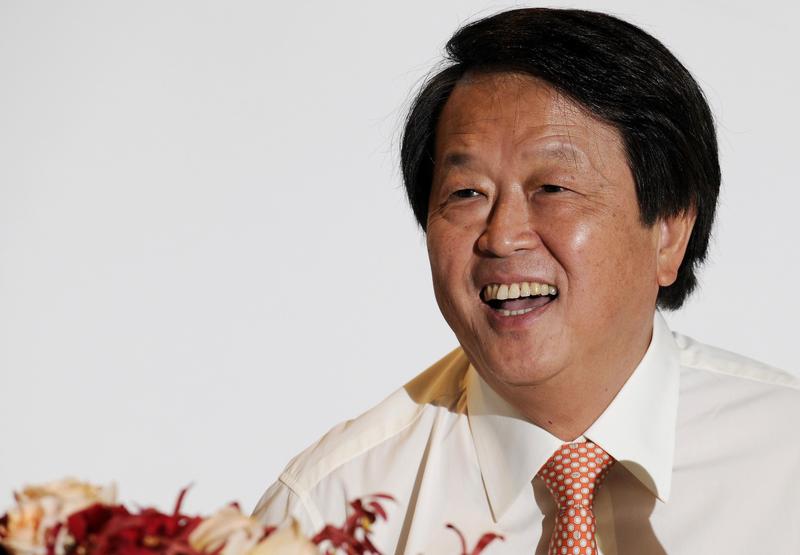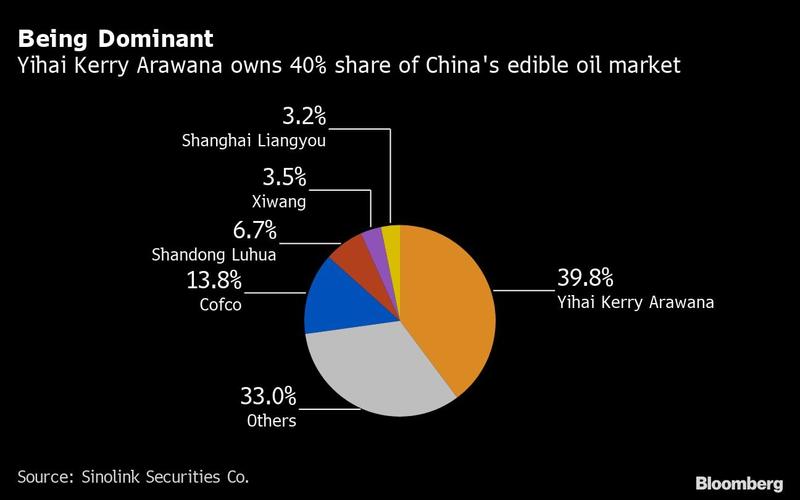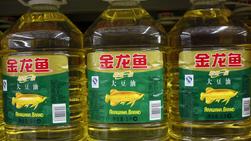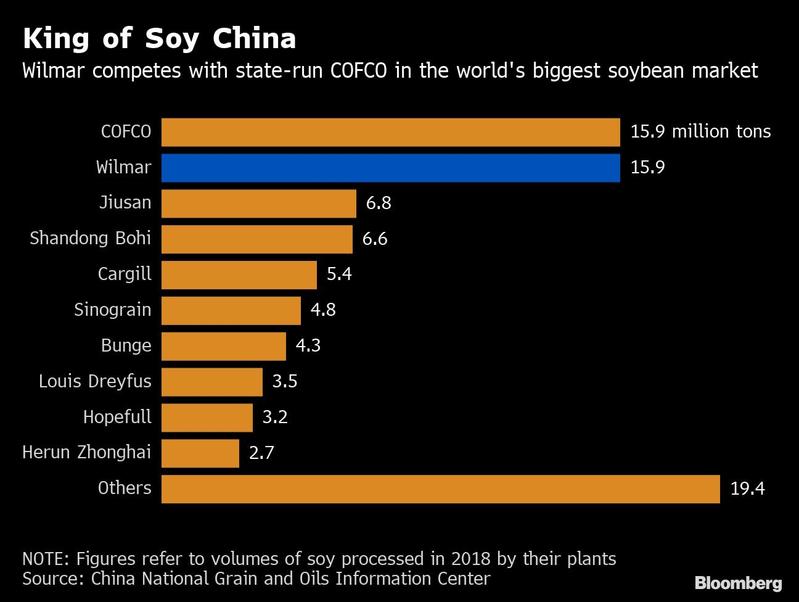 In this file photo, Kuok Khoon Hong, chairman and chief executive officer of Wilmar International Ltd., laughs during the company's second-quarter results news conference in Singapore. (PHOTO / BLOOMBERG)
In this file photo, Kuok Khoon Hong, chairman and chief executive officer of Wilmar International Ltd., laughs during the company's second-quarter results news conference in Singapore. (PHOTO / BLOOMBERG)
Kuok Khoon Hong has pulled off a remarkable second act. The billionaire sold shares of his China business in the biggest ever initial public offering on the Shenzhen Stock Exchange, thanks to the most popular cooking oil brand in the country.
Yihai Kerry Arawana Holdings Co’s share price more than doubled in its first-day on the ChiNext board after the IPO raised 13.9 billion yuan (US$2 billion). Its namesake cooking oil with a Golden Dragon Fish logo has been a staple of Chinese kitchens for decades and fueled demand 3,499 times the amount of shares offered to retail investors online.
After starting production in 1991 from the mainland’s first packed oil production line, the unit of Kuok’s Wilmar International Ltd now has 40 percent of a Chinese edible oil market that consumes almost 40 million tons annually. The IPO came just three years after the country opened doors for foreign firms to invest in the oilseeds crushing sector, allowing global powerhouses such as Bunge Ltd and Cargill Inc to take on local rivals including Arawana and state-run Cofco Corp.

ALSO READ: Malaysia top supermarket chain bans 'palm-oil-free' products
“Yihai Kerry Arawana has tremendous controlling power in its own market, with a solid sales performance even during the lockdown period of the coronavirus,” Wang Ling, a Beijing-based analyst with Sinolink Securities Co, said in a telephone interview.
Wang expects expansion after the IPO will lead to an all-around capacity increase in Arawana’s oilseed crushing and grain processing operations, boosting both its revenue and net income in the three years through 2022.
Arawana’s shares closed up 118 percent at 56 yuan, compared with the IPO price of 25.70 yuan, after spiking to as much as 62.65 yuan in the last half an hour of trade.
The share sale surpassed CGN Power Co’s 12.6 billion yuan listing in 2019 to be the largest IPO ever in Shenzhen, according to data compiled by Bloomberg.
Arawana’s shares closed up 118 percent at 56 yuan, compared with the IPO price of 25.70 yuan, after spiking to as much as 62.65 yuan in the last half an hour of trade
Kuok’s IPO of Arawana follows his success in turning Wilmar, with annual revenue of more than US$40 billion, into the world’s biggest palm-oil business. Shares of the Singapore-based commodities giant fell 5.6 percent as of 3:18 pm local time, paring this year’s gain to 6.8 percent and prompting an exchange inquiry. Archer-Daniels-Midland Co owns more than 20 percent of Wilmar.
Arawana pitched the IPO as a reflection of its position in China and a bet on the country’s future, it said in a statement on its website last month. The company had revenue of 171 billion yuan in 2019 with net income of 5.56 billion yuan, according to an exchange filing.
The IPO appealed to the mainland’s individual retailers with a promise to share profits with the Chinese people and contribute to the economy of its homeland.
 In this file photo, bottles of Wilmar International Ltd. Arawana brand cooking oil sit on a shelf at a supermarket in Shanghai, China. (PHOTO / BLOOMBERG)
In this file photo, bottles of Wilmar International Ltd. Arawana brand cooking oil sit on a shelf at a supermarket in Shanghai, China. (PHOTO / BLOOMBERG)
That’s a powerful message in a market where individual investors are fueling a share rally, with the value of Chinese domestic equities topping US$10 trillion for the first time since 2015. The world’s second-largest stock market has added US$3.3 trillion since a low in March, helped by government policies to encourage trading, a flurry of new listings and the strengthening yuan.
Huang Xiong, a 53-year-old from Shanghai, snared an allocation of shares in the IPO and said he was drawn in by Arawana’s strong position in the cooking oil market.
“The product is meeting demand for something that all homes must consume on a daily basis in China,” Huang said in a telephone interview. “Arawana has been in a dominant position here as a brand everybody knows for many years,” he said, adding that a general bullish sentiment in China’s stock market fueled interest.

READ MORE: La Nina rain to lift palm oil output in top grower to record
Yihai Kerry Arawana currently operates more than 70 production bases in China producing cooking oil to rice, flour, dairy and other ingredients. It has said the IPO proceeds will be used on 19 food production projects in the country. Kuok has reiterated his confidence in the mainland, even as a deadly pig-killing virus cut demand for animal feed, and the outbreak of coronavirus forced people to dine at home.
In its latest expansion, Arawana will invest 10 billion yuan to build the largest food complex in China’s east, according to the local government. The industrial park located in Jiangsu’s Lusi port will include an edible oil refinery, facilities to crush oilseeds and process rice, as well as piers. The project will target the almost quarter of a billion consumers in China’s rich Yangtze River Delta, a market that includes Shanghai, Nanjing and Hangzhou.


